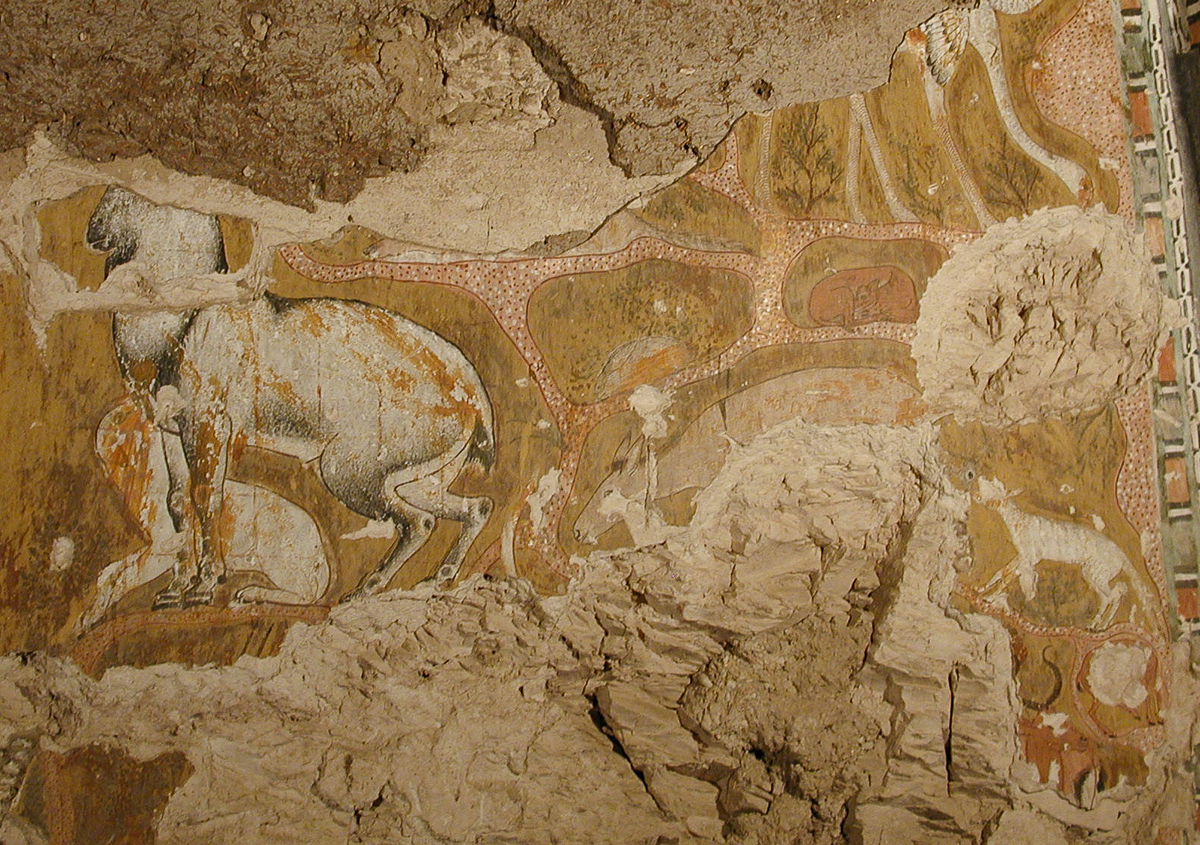
Sponsored by: The American Research Center in Egypt (ARCE), Pennsylvania Chapter (ARCE-PA)

In-person lecture
Saturday, November 9, 3:30 pm EST
Penn Museum, Classroom 2
Speaker: Dr. Chelsea Kaufman
Title: No Ordinary Dogs: Canine Behavior in Theban Tombs
Abstract:
The wall scenes of the rock-cut Theban tombs of the New Kingdom are filled with richly painted imagery that captures the lives and beliefs of the people who built them, offering modern viewers a window through which to recognize and relate to a distant past. Depictions of familiar animals abound in tomb scenes, but perhaps no animal is more familiar to a modern viewer than the domestic dog. Scholars have long been drawn to and commented on canine imagery in Egyptian tombs, often remarking on their proficiency as hunting hounds and their status as beloved companions, many of which were endearingly named and shown alongside the tomb owner receiving offerings. But is there more to the icon than a testament to a cherished pet? Past approaches to dogs in Egyptian art have taken an anthropocentric view, focusing on what dogs tell us about the lives of people while ignoring the animal’s unique ethology. As this talk will show, applying an ethological approach to the images of dogs in tomb scenes can offer a nuanced understanding of the dog’s role within the scenes and the scene itself.
Speaker Bio:
Dr. Chelsea L. Kaufman recently received her Ph.D in Near Eastern Studies from Johns Hopkins University. Her dissertation research centered on representations of domestic dogs in 18th Dynasty Theban tombs, applying an ethological approach to better understand the role that dogs played both in funerary art and society. Kaufman holds a master’s degree in archaeology from Yale and a bachelor’s degree in art from Moravian University, focusing on studio art, art history, and archaeology. She has 10 years of archaeological survey, excavation, and illustration experience within and outside of Egypt including the Mut Temple Precinct in Karnak, Deir el-Medina, the Outer Hebrides, and various historic and prehistoric sites throughout northeastern Pennsylvania and Alabama. Kaufman’s interests are varied, being involved in an ongoing experimental Egyptian metalworking project both before and during her dissertation research. Kaufman is currently working on publishing her dissertation and expanding on topics within it through a series of upcoming articles.
***************************
Registration is NOT required. Lectures are FREE to ARCE Members, $7 for University of Pennsylvania Museum Members and UPenn Staff and Faculty, $5 for Students with ID, and $10 for the general public.
Light refreshments served starting at 3pm.
****************************
The American Research Center in Egypt (ARCE) is a private, nonprofit organization founded in 1948 by a consortium of educational and cultural institutions to support research on all aspects of Egyptian history and culture, foster broader knowledge among the general public, and strengthen American-Egyptian cultural ties. The ARCE Pennsylvania Chapter (ARCE-PA) is the local branch of the national institution. We host monthly events including scholarly lectures, Egyptian-themed workshops, social events, and guided tours of the Penn Museum’s Egyptian galleries. For more information or to learn about the perks of membership, please send an e-mail to info@arce-pa.org, or visit our website at www.arce-pa.org.
Notifications